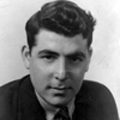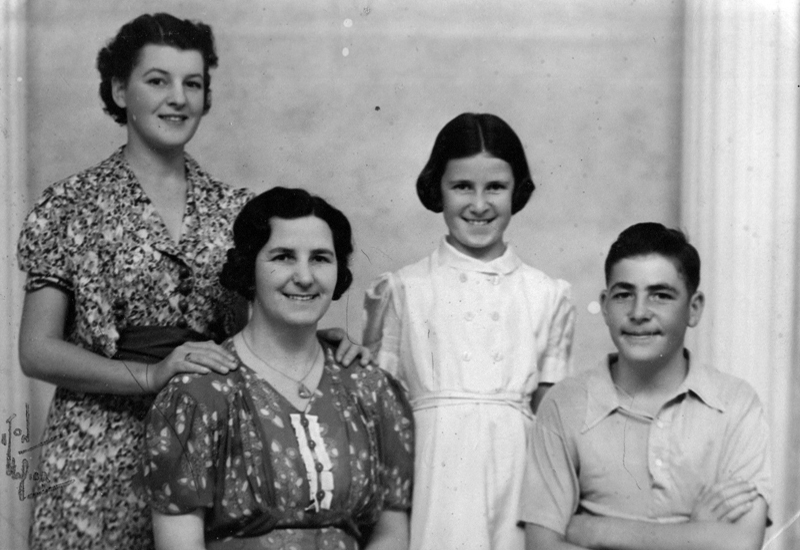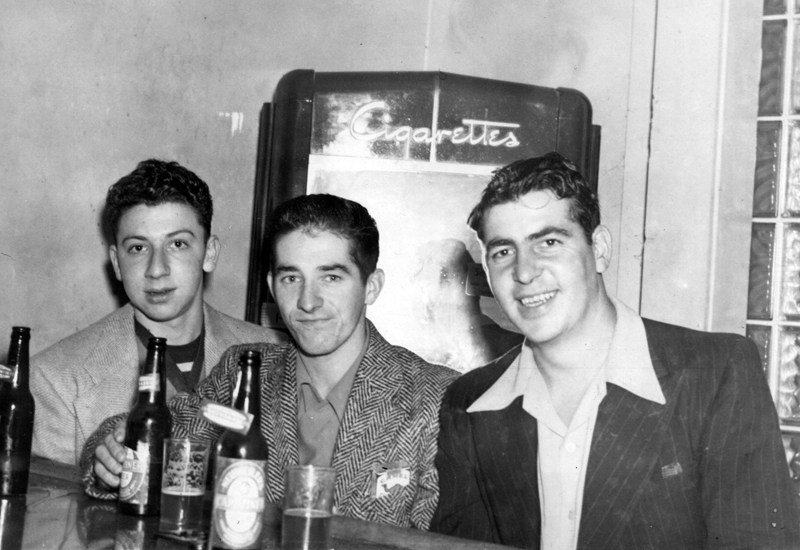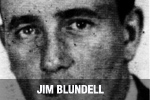 Thor Larsen
Thor Larsen
Thor Larsen was born in Napier in May 1927. His father, a Norwegian who had come to New Zealand before the First World War, worked as a lighter master for Richardson & Company at Port Ahuriri. Lighters were flat-bottomed small vessels that carried the cargo in from the larger ships that couldn’t berth at the docks. Thor remembers as a young kid the close-knit Norwegian community at the port, most of whom worked on the wharf or sea. They used to socialise together, speak in their native Norwegian tongue, and drink together after work at the Railway tavern that they considered ‘their turf’. The Port was one of the main destinations for Norwegian immigrants at the turn of the 20th century, along with Norsewood/Dannevirke areas for those who chose to work the land rather than the sea.
Thor spent much of his childhood at the Port, helping his father on the lighters during school holidays, picking up fish to bring home from the fishing boats along the Iron Pot, or just watching the coming and goings of the ships. An insight into the loyalty, pride and fiery temperament of the workers at the port, as well as the tough and adversarial working culture and environment of those years was illustrated when in 1938 his father had been wrongly accused of stealing some wire by a Richardson & Co foreman. His father knew who it was, but refused to dob a fellow worker in, and was sacked on the spot. When the culprit, a one-eyed worker called Fleetwood heard Mr Larsen had been fired, he confessed, and Mr Larsen was offered his job back only to tell them to “stick it up your arse.” The Larsens then moved for a time to Auckland and worked on the wharves there.
Thor finished school at 17 during the war, and was ‘messing around’ as he recalls, on a farm in Te Kauwhata, when his father enquired if he wanted to go to sea. Thor was due to be ‘manpowered’ for work, but much preferred being at sea. His father said that he could get him a job on a ship, so without doing any paperwork or letting the authorities know his plans, he joined the ship – doing what was known as a ‘pierhead jump’. No questions were asked, and he was soon away on the Norwegian ship flying the Panamanian flag – the SS Carola. It was a ‘tramp ship’ that picked up jobs and went wherever the clients needed. His job was initially as a ‘mess/deck boy’ – keeping everything tidy, scrubbing and setting up the mess-room etc. Over time he went from mess-boy to ordinary seaman, then to AB. “They were desperate for seaman, so I rose up the ranks pretty quickly, quicker than I should have.”
The ship did trips to destinations like New Guinea where they didn’t have wharves and while on unloading, you tied the ship to large trees on the beach. In the war zones of the Pacific Navy activity and escorts were commonplace. They had a close-call in the Bass Straight. It was winter. Coming out of heavy fog, they saw a ship in the distance: “It was just sitting there still. They must have spotted us (as well), and they started up their engines and in a matter of minutes, it seemed, disappeared. Then they came up suddenly behind us.” Thor thinks it was a German raider, who after sizing them up decided not to waste a torpedo on an old dunger like them. Thor also remembers the fun times and adventures ashore on leave in foreign countries and cities. He was in Melbourne for VE (Victory – Europe) Day.
After the war, Thor worked at Port Ahuriri as his father had done before.
Related Images
Jim Blundell – War Joining up Into camp
 Jim Blundell – War Joining up Into camp
Jim Blundell – War Joining up Into camp Jim Blundell – Provincialism and condescension
Jim Blundell – Provincialism and condescension Jim Blundell – Merchant Navy
Jim Blundell – Merchant Navy Jim Blundell – Home guard and Manpower work
Jim Blundell – Home guard and Manpower work Jim Blundell – Hard men combined
Jim Blundell – Hard men combined Alan Goss – Hardtimes Earthquake
Alan Goss – Hardtimes Earthquake Alan Goss – Entertainment at the Port
Alan Goss – Entertainment at the Port Alan Goss – The Port People Shaped life
Alan Goss – The Port People Shaped life Alan Goss – Intro Family Growing up
Alan Goss – Intro Family Growing up Audrey Bailey – Lagoon School
Audrey Bailey – Lagoon School Audrey Bailey – Local characters
Audrey Bailey – Local characters Audrey Bailey – The Port How its changed
Audrey Bailey – The Port How its changed



